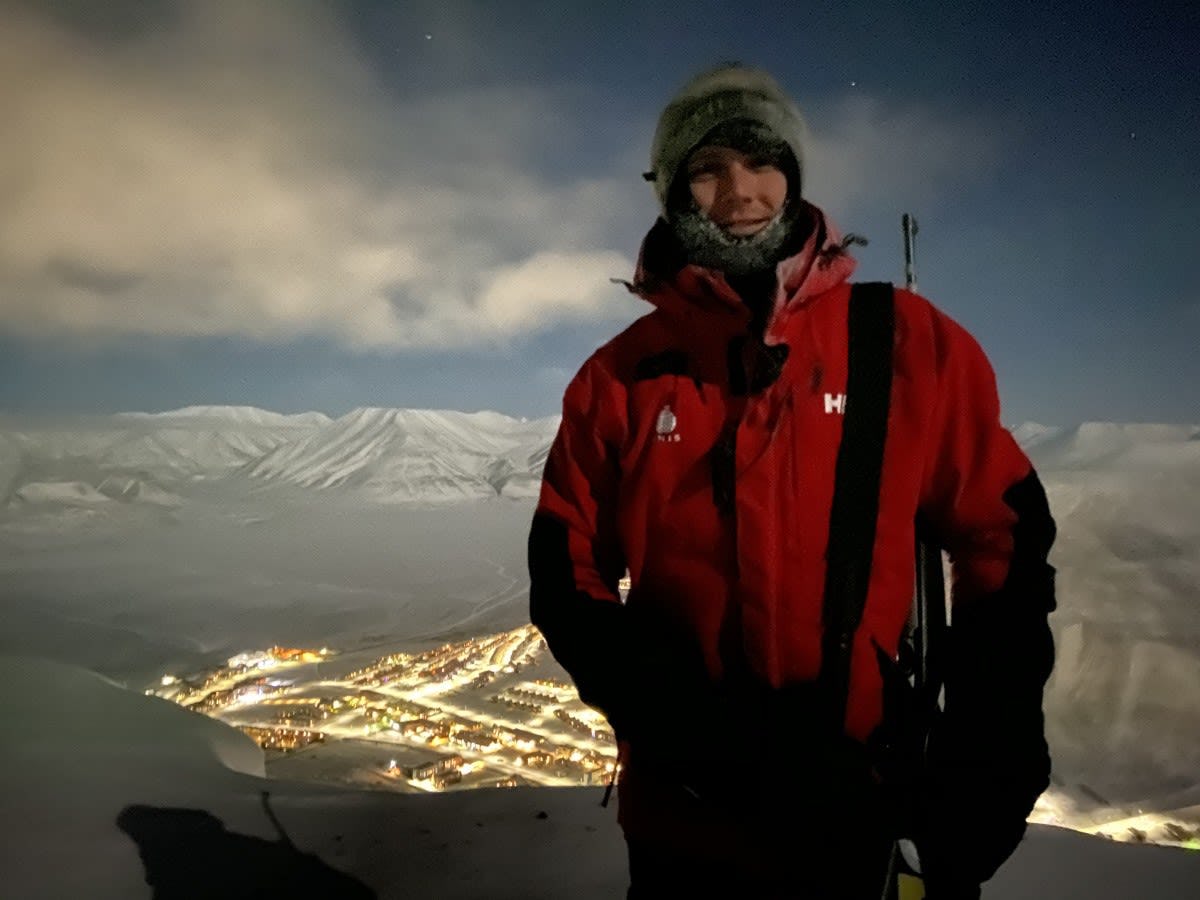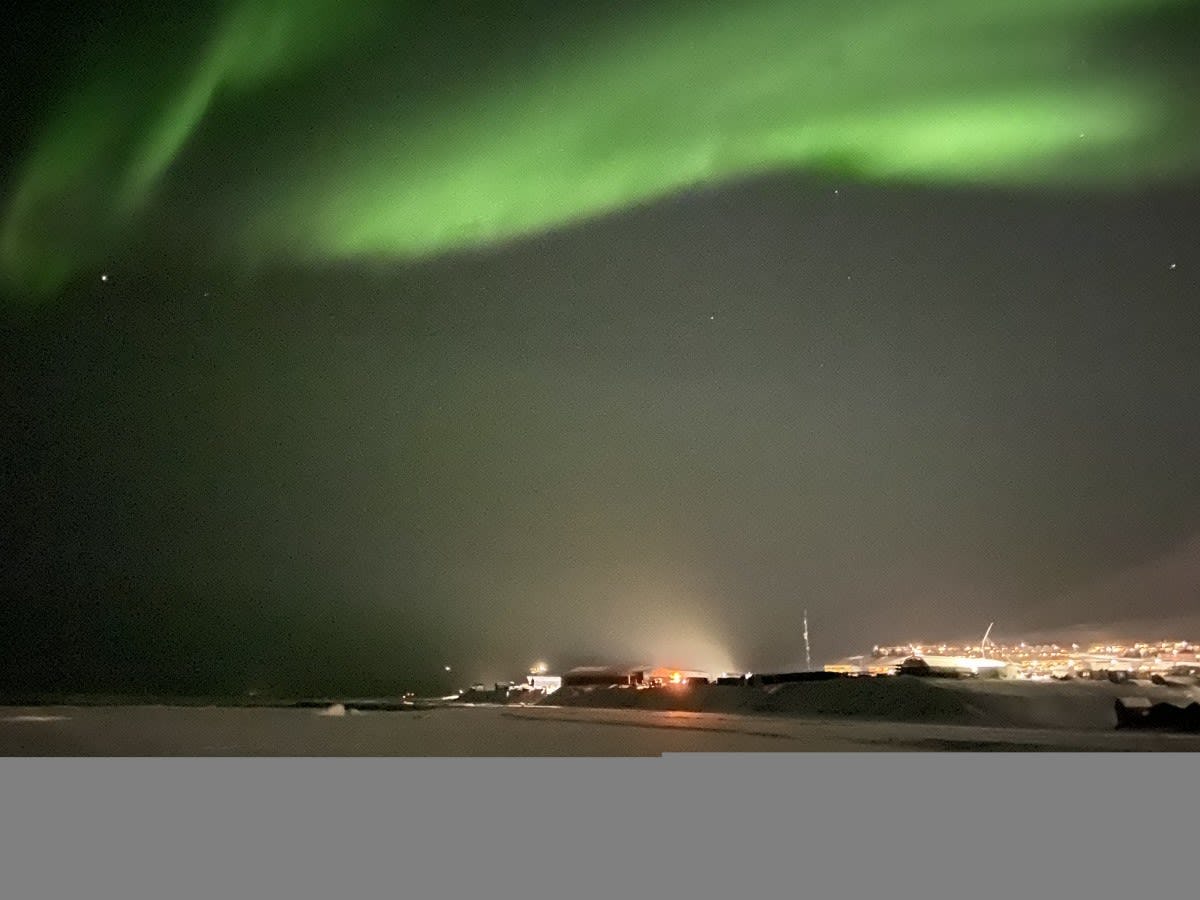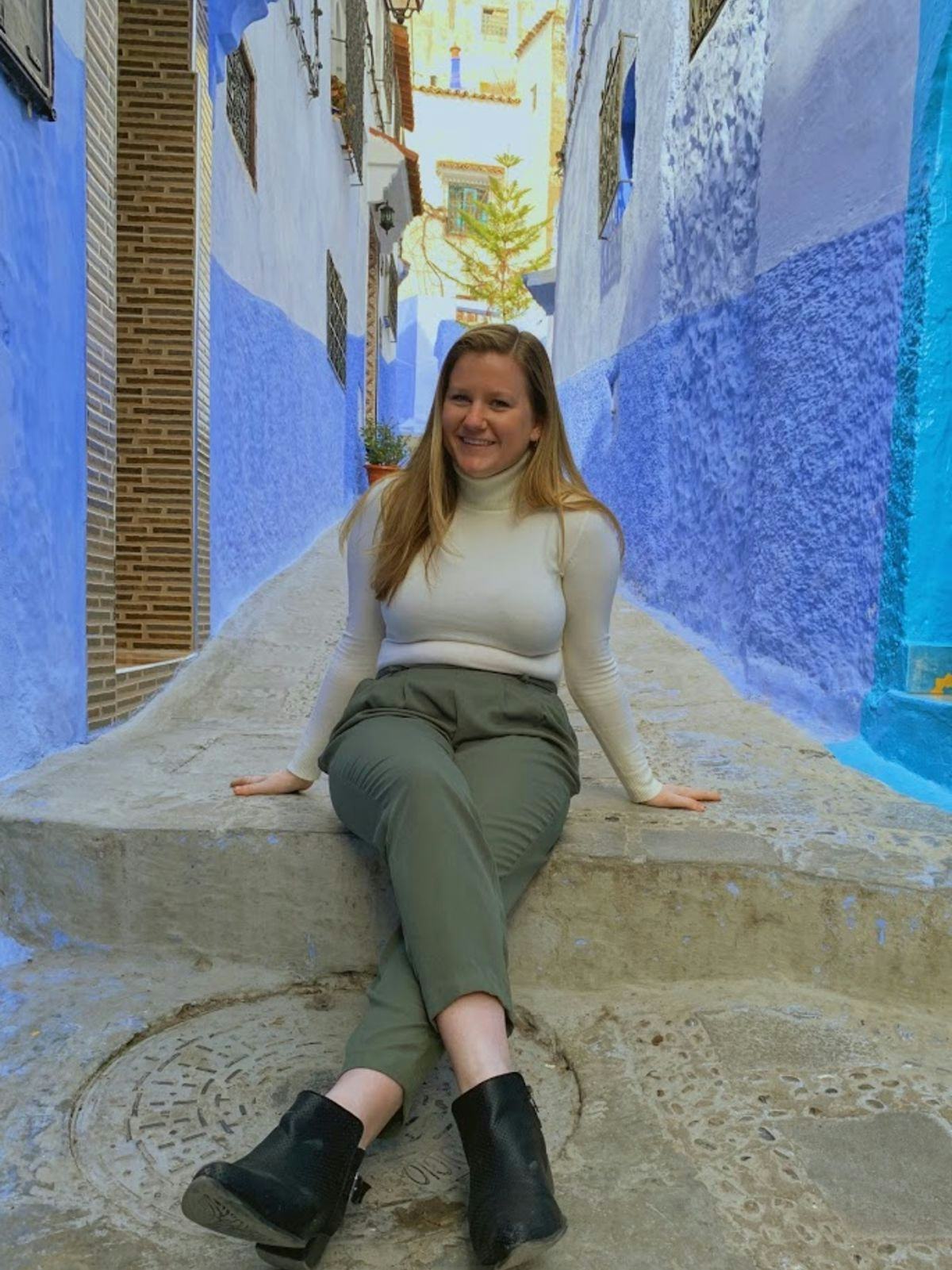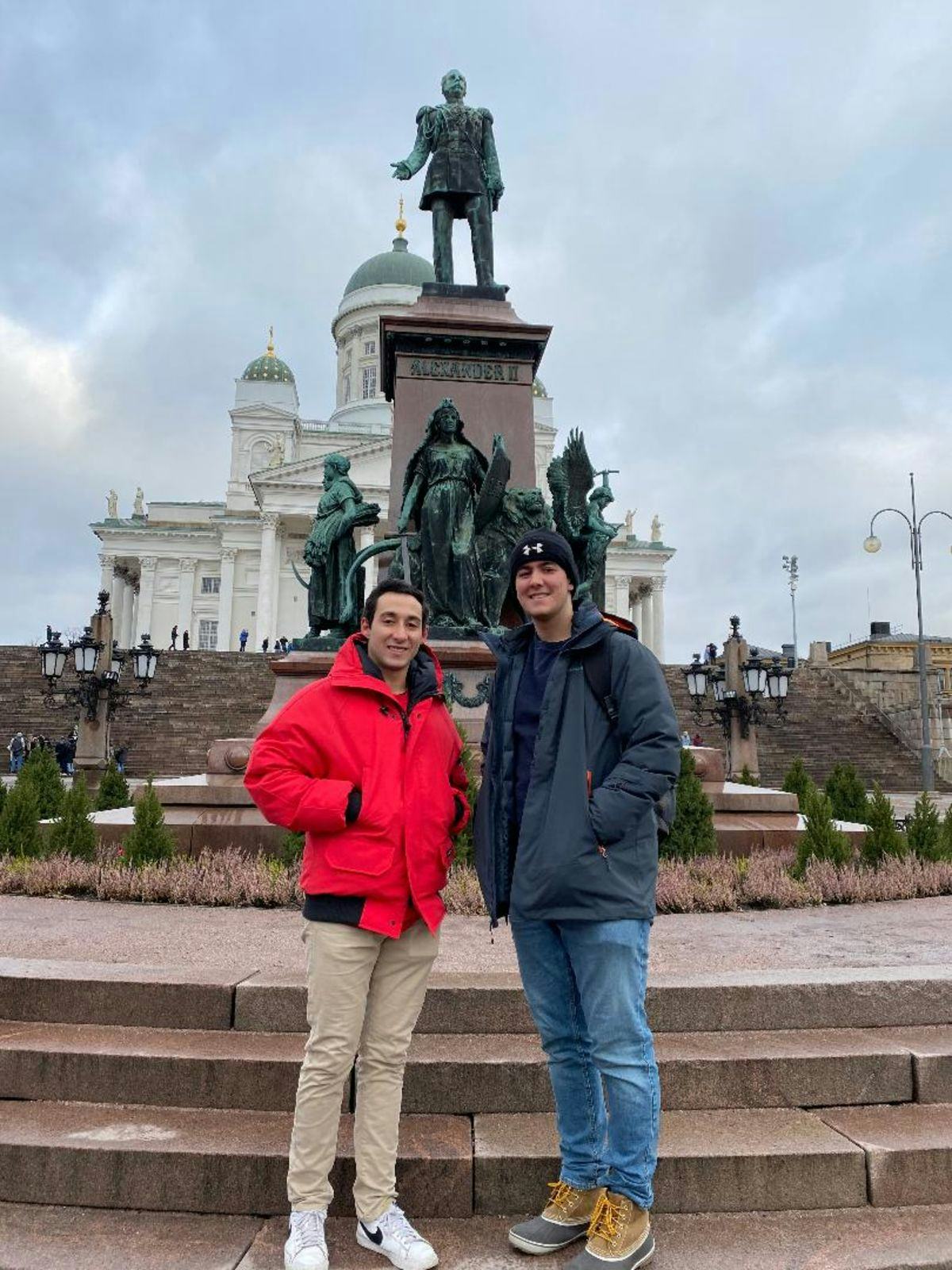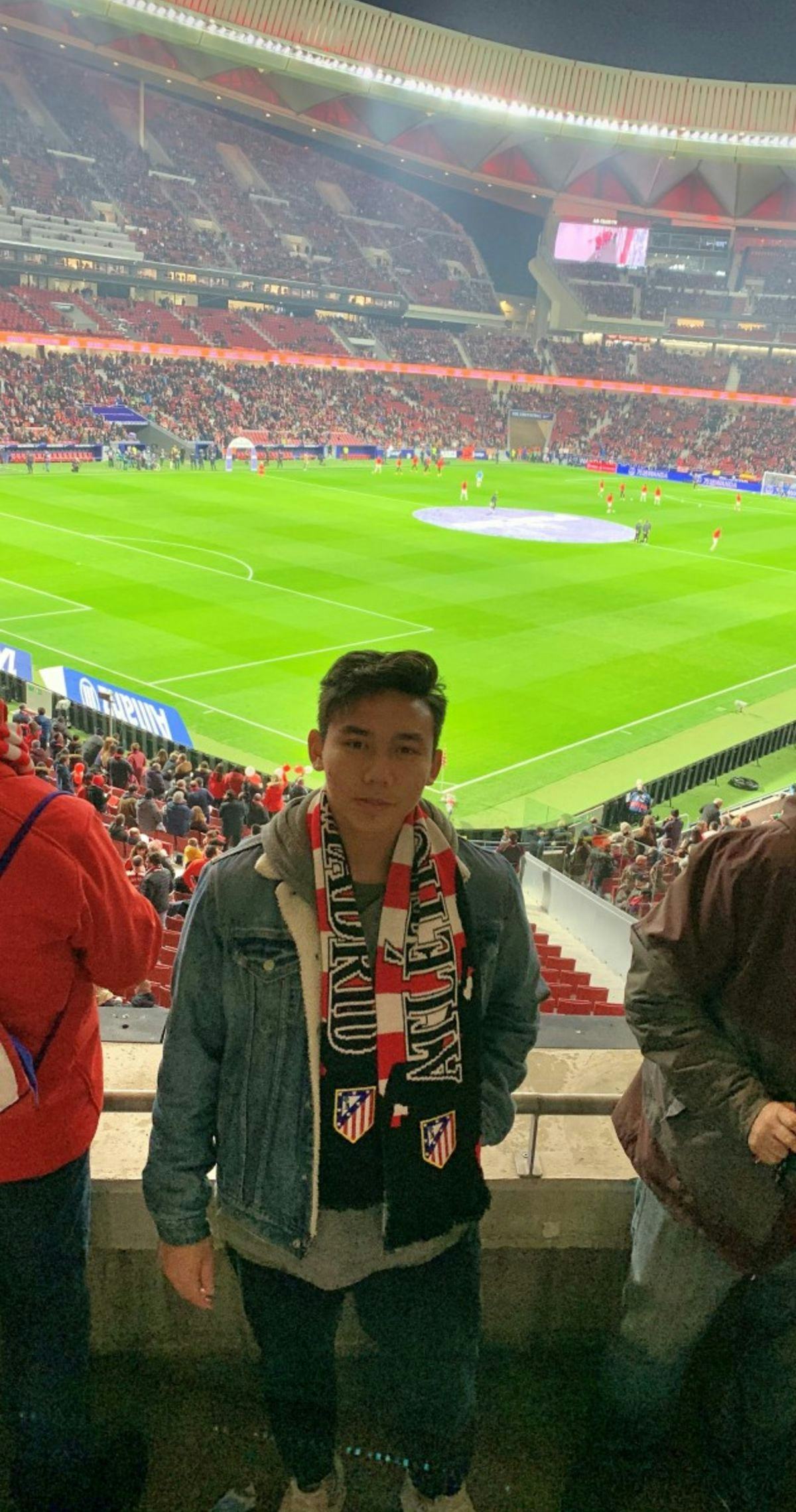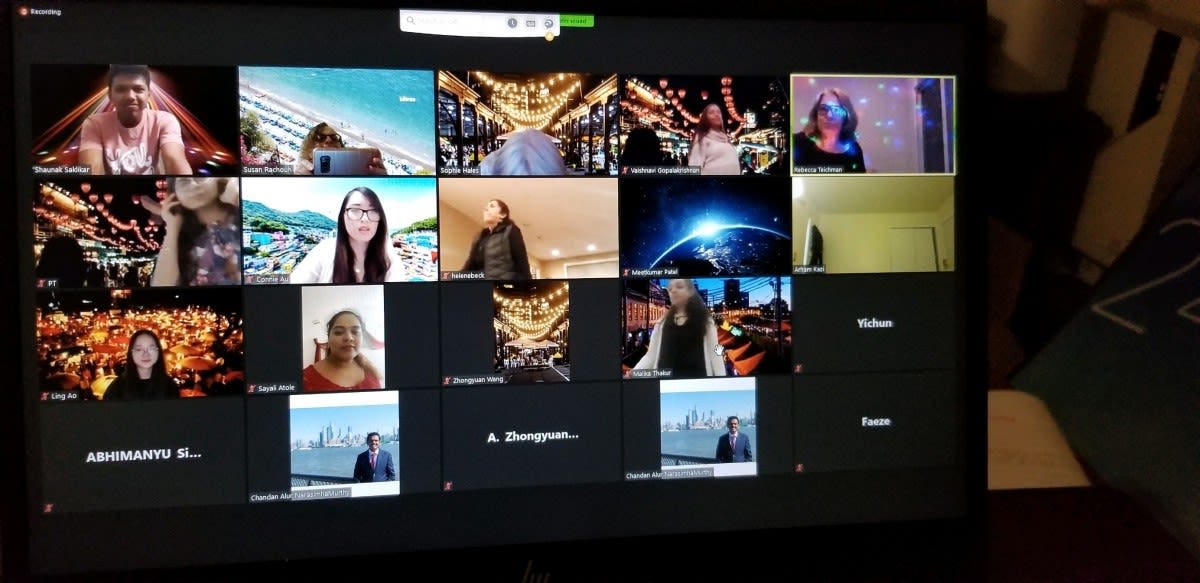Distant learning became distance learning for engineering students studying in Europe when the global pandemic hit
Through the Stevens Institute of Technology Study Abroad Office, undergraduate and graduate students can broaden their academic experiences with a challenging international component. In the spring of 2020, however, that experience became a bit more challenging than expected for 11 Charles V. Schaefer School of Engineering & Science (SES) students when COVID-19 abruptly shifted their studies in Spain, Norway, Sweden, and France back to the U.S.
“Through my involvement in the Overseas Security Advisory Council academia working group, we were able to get valuable insights into what was going on, what the U.S. Department of State was saying, and what other universities were doing,” recalled Susi Rachouh, Director of International Programs. “We didn’t have any students in Asia, but when early February hit and Italy spiked, we became much more concerned that the semester would be cut short. We were in touch with the study abroad students to get them ready for that likelihood. After the U.S. began restricting travel from Europe in mid-March, we advised them to leave, and they all did choose to come home.”
That decision raised new uncertainties.
“We were concerned for their safety in terms of potentially catching the virus while travelling versus staying, or not even being able to get a flight back to the U.S.,” Rachouh said. “We were concerned about their having problems coming home, getting sick, losing credits, not being able to complete their courses, and maintaining contact so they’d tell me if problems arose. It was a difficult time.”
Despite the upheaval, the study abroad programs continued, albeit from an extreme social distance of thousands of miles. Moreover, the students were not only able to complete their studies, but they also developed strong bonds with other students, increased their ability to deal with unexpected situations, and gained valuable experiences that they’re leveraging to advance both their careers and their confidence.
“All of our exchange partners and study abroad providers had mechanisms to go online,” Rachouh said. “Some were asynchronous, and others were synchronous, which did mean some students were taking classes in the middle of the night. Some of the schools did try to maintain the study abroad feel in the virtual format, such as by livestreaming a festival in Amsterdam. In the end, all the students finished their programs. We’ve all had challenges during COVID-19, and these students overcame their unique situations, developing adaptability, resilience, and the ability to pull together last-minute travel! They’ve had to grow up quickly, and they should be proud of what they’ve gained in the process.”
Blazing Glacial Trails in Norway
When Townsend Morey, naval engineering student in the Class of 2021, said his study abroad experience at the University Centre in Svalbard, Norway, was cool, he wasn’t kidding. In the world’s northernmost town, 800 miles north of the mainland, he studied ice dynamics and frozen ground engineering, and experienced temperatures as low as -35oF—which felt more like -50oF with the wind chill.
“I wanted to see more of the world,” Morey said. “I love winter hiking in the Appalachians and going to the high alpine lakes in Colorado. While watching YouTube travel videos, I had seen a university center with an engineering program in Svalbard, and I knew I needed to go there to do surveys on sea ice, hike on glaciers, and experience extreme outdoor activities. For the first six weeks, there was no sun, just 24 hours of darkness, and then for the first sunrise of the year, we climbed the tallest peak there to finally see the sun rise through the notches of ridges 50 or 60 miles south. It looked like colorful pillars of light rays—a perspective I’d never seen before.”
His studies and interactions were also illuminating.
“I met such an interesting, dynamic group of people, from so many different walks of life, and everyone was extremely outdoorsy and very driven,” he said. “We did fascinating research. Once we took snowmobiles out to a mining colony 125 miles away, and we spent two weeks doing hands-on structural tests.”
Because the location was so remote, he thought he might be able to ride out the pandemic there, but he eventually returned to Massachusetts—a decision that brought its own challenges.
“The only links between Svalbard and the mainland of Norway are an ice-capable supply ship that comes once every two weeks, and one or two flights a day,” Morey explained. “As soon as COVID-19 started becoming a threat, Norway banned tourism and sent the tourists home, then flights went down to a trickle, so Norway did contain its exposure, but I still ended up leaving.”
And then, after 32 hours of travel on four international flights, Morey arrived in Boston with an unwanted souvenir—COVID-19.
“The guy next to me from Heathrow in London to JFK Airport in New York was coughing, so that’s probably where I caught it,” he said. “It was 10 days of mostly chills, a sore throat, and a runny nose. I was quarantined for 17 days, but I still did classes online through Microsoft Teams.”
Although the time difference and primarily field-based learning further complicated his remote experience, Morey transitioned to theoretical studies and lab writeups of data from previous years. He has kept in touch with friends he made from Estonia, France, and Hungary. And he is still hot to continue his studies in cold weather structures.
“Studying ice dynamics has given me a greater depth of knowledge in naval architecture and ship design,” he said. “It helped me specialize, and I plan to go back and take master’s classes there. Who knows? I may end up in cold weather and arctic engineering.”
Morey warmly encourages other Stevens students to take the plunge into study abroad as well.
“Go for it,” he said. “Go explore and take advantage of the opportunity to do cool things you’ll remember for the rest of your life. If you’re apprehensive, that’s just part of it, so go with it and push through. On my first day abroad, I found myself in an intensive safety course that ran nine hours a day for eight days. As part of ice safety training, in the complete darkness, I put on a full snowmobile suit, someone tied a rope around me, and I jumped into a hole in a fjord and swam in 28oF water for a minute as the snowmobile suit filled with water and my hands grew numb. For polar defense, I was issued a .30-06 hunting rifle, which I kept in a gun safe in my room. If I could do all that on my first day, you can get through anything!”
Hasta la Próxima, Spain—Until We Meet Again!
For Taylor Reilly, civil engineering student and a member of the Class of 2023, studying at the Universidad Pontificia Comillas in Madrid, Spain, was a natural progression in the love of languages she developed in high school.
“I always knew I wanted to study abroad in a Spanish-speaking country, where I could stay and feel part of the culture,” she said. “Although I thought I knew Spanish, I quickly realized I was rusty! For the first three weeks, the only other girls in our apartment were from Spain, and they didn’t know any English at all. Then three other girls came from Switzerland and Romania, and they spoke perfect English, so they were able to fill in the gaps. By the end, I was teaching them to speak English, and they were teaching me Spanish phrases. We still text in both languages so we can keep practicing!”
Reilly’s course schedule included classes in fluid mechanics, thermodynamics, environmental engineering and sustainability, and Spanish culture. And then she got the wake-up call to come home.
“Things were starting to get bad in Spain, and the school had shut down as a precaution,” she recalled. “After President Trump issued the travel ban, my parents spent the night calling me, and I woke up to a bunch of missed calls and texts. The flight prices had jumped thousands of dollars, and I couldn’t get a direct flight, but it wasn’t as bad as some people, who were looking at layovers in Russia. I had to pick up everything and move in 24 hours. It certainly taught me to be more easygoing and adaptable and go with the flow.”
When she got home to New Jersey, Reilly watched lectures recorded in Madrid, did her homework, took her exams, and then moved on to her next adventure, a co-op at Stonefield Engineering and Design in Rutherford, N.J. But part of her heart is still in Spain.
“I definitely want to go back, maybe even live there for a year,” she said. “It’s more laid-back, not as fast-paced. I loved how easy it was to travel around Europe. I saw four countries while I was there. It was a great experience that everyone should have. If you’ve ever even thought about study abroad, just go, and don’t let what happened with the pandemic stop you. Any amount of time abroad, even winter intercession, would be great. You can learn so much and do so many interesting things you wouldn’t be able to do otherwise.”
The Answer is Blowin’ in the Wind-Powered Cargo Vessel
Emilio Domenech, naval engineering student and a member of the Class of 2021, just wanted to try something different—and that’s certainly what happened during his weeks at the KTH Royal Institute of Technology in Stockholm, Sweden.
“I had heard from other students who enjoyed the program in Sweden,” recalled Domenech, who studied at KTH with fellow Stevens naval engineering student Sam Murphy, Class of 2021. “It’s tough weather-wise, but the people are nice, and the immersive program is worth it.”
Domenech immersed himself in studying hydrodynamics and fiber composites, as well as a humanities lecture. He also worked on the wPCC project, conducting advanced tests on a seven-meter model of the innovative wind-powered cargo vessel Oceanbird, scheduled to be built in 2025.
“I wasn’t planning to take the class, but after I talked with other classmates who were working on it, it sounded too cool to pass up,” he said. “It was a lot more work than I thought it would be! I’d literally wake up early and work all day until 8 p.m. But it was really interesting, and inspired my interest in working on wind-powered vessels.”
Outside the study area, although Sweden wasn’t gearing up for COVID-19 lockdowns, once the U.S. announced it was limiting travel from Europe, within 48 hours Domenech found himself back home in Ponce, Puerto Rico.
“I argued with my parents that I wanted to stay, but they weren’t having it,” he said. “I packed up in a day and left a lot of things in the room. I didn’t even get to empty the refrigerator, but I did alert the residential life team. Then it was a day’s worth of travel, without a mask. Luckily, I didn’t get sick.”
He didn’t contract the coronavirus, but he did return to the ongoing earthquakes in Puerto Rico. “It was quite a shock,” he said. “I remember being there a couple of weeks and waking up to a 4.5 earthquake. The bed was shaking, and I just ran downstairs, but I was the only one scared. By then, my family was used to them.”
Domenech also had to get used to living on Central European Time, a five-hour time difference.
“All classes were live, so every other day had to wake up really early for Zoom classes, and I took a final at 3 a.m.,” he said. “It was exhausting. But as far as classes go, I had a great learning experience. I like how they go deep into the theory before they go into the math, and how we’d have large assignments on a weekly basis. Our hydrodynamics professor did give Sam and me our own class. It was my hardest course, and I appreciated the increased attention.”
This summer, Domenech did get to travel again, interning in Mobile, Ala., with global ship builder Austal. “I worked for two months on structure calculations supporting the construction of aluminum Navy ships,” he explained. “The engineering classes I took in Sweden were useful, and it was helpful to have that information fresh in my mind.”
Domenech encourages others to pursue fresh perspectives in other countries as well.
“It’s absolutely OK to take a semester away,” he said. “I learned a lot being by myself, and being fully engaged in a new culture. Your whole perspective changes depending on where you are, and the more places you go, the more perspective you’re able to acquire.”
Finding the Zone Outside the Comfort Zone
Taylor DeGuzman, a member of the Class of 2023 studying biomedical engineering, scored a lifelong goal when he studied abroad at the Universidad Pontificia Comillas in Madrid, Spain.
“I grew up playing soccer, and I’d always wanted to go to Spain where soccer is the biggest sport,” he recalled. “I had also learned Spanish throughout high school, and wanted to experience the culture myself. When I found out that I could study in Spain, there was no questions that I would go. It was an opportunity to get out of my comfort zone and have the college experience in a totally different environment.”
And a different environment it was. During orientation week, in addition to their introduction to the campus, DeGuzman and his new friends spent their evenings exploring Spain.
“My favorite memory is learning the bachata and salsa at a club,” he said. “I’m definitely glad I took up to Spanish 6 in high school. I wasn’t able to converse right away, but I recalled a lot of vocabulary, so I still understood what they were saying. With the constant exposure, I soon felt more fluent.”
As one of eight Stevens students studying in Madrid in the spring, DeGuzman took courses in materials science, thermodynamics, electronic circuits, and Spanish culture through films. But as the COVID-19 cases began to spike, classes began to get cancelled, and people began leaving.
“On Wednesday, March 11, we were watching television, and we saw that the U.S. would be limiting European flights to the U.S. starting that Friday,” he recalled. “We realized we had to get home immediately. It was super sudden. We tried to book flight tickets right away, and saw that prices had already skyrocketed. I tried to take everything in one last time, buy souvenirs for family and friends, and say goodbye to the friends I had made in Spain. I didn’t sleep from Wednesday morning until Friday; I was like a walking zombie going to the airport terminal. Somehow it ended up OK.”
Back home in California, DeGuzman dove straight into online Universidad Pontificia Comillas classes, learning to collaborate long-distance.
“We were all in different time zones, and none of us were taking the exact same classes, so it was hard to coordinate,” he recalled, “but eventually we found the flow of things.”
DeGuzman avoided COVID-19, but he did catch the travel bug.
“Having that experience abroad confirmed I’m capable of traveling and communicating with others, even if we don’t speak the same language,” he said. “I was able to grow my independence, and wasn’t expecting to walk away with that. I definitely want to travel more and experience different cultures and people and languages. I don’t think I’ve met anyone who regretted studying abroad, even in the pandemic. It’s a great option to enjoy a new experience and still cover credits at the same time. It’s a win-win.”
Learn more about research in the Department of Biomedical Engineering →
Study Abroad at Home with a Virtual International Internship
For students who have always dreamed of spending time in a foreign country, or just looking for a unique way to enhance their skillsets, network, and Stevens experience, the study abroad program is a great opportunity to acquire a truly world-class education.
While the global pandemic has halted international travel indefinitely, students can still participate in virtual international internships. During the summer of 2020, more than 30 students completed internships, and exciting internship opportunities are still available during the January 2021 intersession and/or summer 2021 session.
Interested students can contact Susi Rachouh, Director of International Programs, at [email protected]; schedule a meeting to discuss options; or attend a weekly virtual information session, and get ready to broaden their experiences with an international flavor, all from the comfort and safety of home.
Learn more about research in the Department of Biomedical Engineering →

